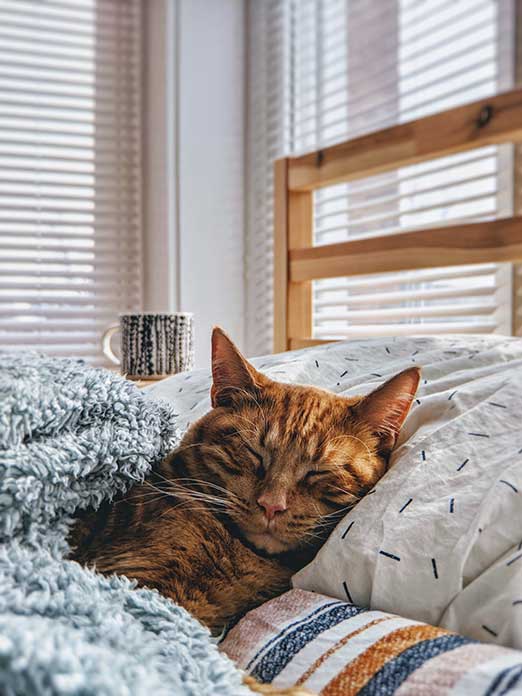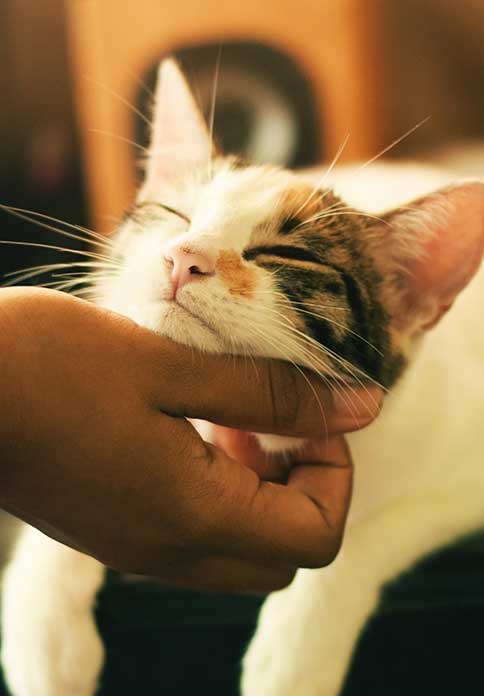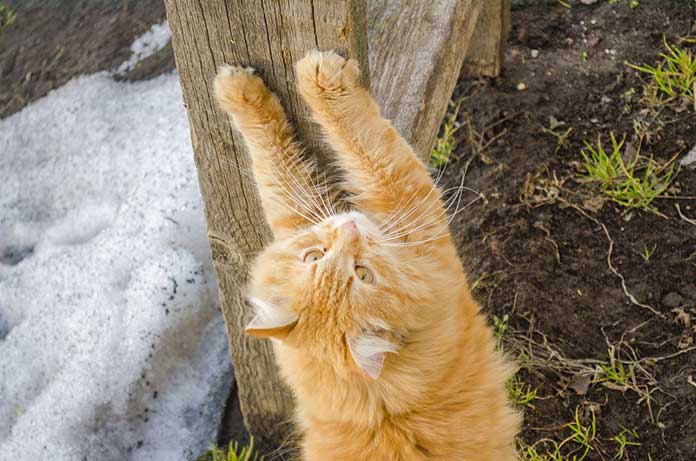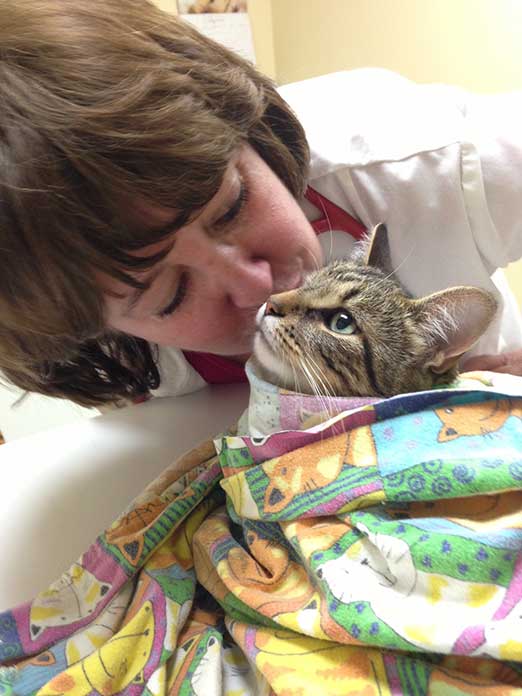This Pointe Claire veterinarian has some advice if you’re planning to welcome a feline into your home and heart: Be prepared for the long term.
By Dr. Sherlyn Spooner

Are you seeing a new cat in your future?
Before you adopt one, there are a few things to consider if you wish to live in harmony with your furry companion. The first is that cats are, on average, living longer because of improvements in healthcare and indoor lifestyles. This means that you’ll be making a commitment of between 14 and 18 years.
Then there’s the cost to consider. Recent statistics suggest that it costs, on average, more than $2,000CDN annually to care for a cat. This includes a high-quality diet, pet insurance, litter costs, and veterinary care. Long-haired cats also need professional grooming.
What’s more, cats require your time and attention: It’s important to engage in interactive play to keep a cat intellectually stimulated. They also need pats and cuddles. Some brushing and regular nail trims will help keep your feline in top shape.


Although cats are more independent than dogs, they should not be left alone for long periods of time. They want to be with us.
The COVID pandemic has allowed many people to work from home, but this may be about to change. Moreover, we will probably begin to travel again. You may opt to board your cat or even travel with your feline friend. Many hotels are now cat-friendly.
And while it may seem obvious, there is something else that is important to note: Cats come with claws. Scratching is both a normal and required behaviour. It helps them to stretch, and provides a visual and scent mark in their own territory. Declawing or partial-digital amputation is now considered unethical and cruel, and it leads to long-term pain. There are some solutions available to decrease damage to your furniture. Scratching posts, false nails—called Soft Paws—and double-sided adhesive tape, applied to furniture, especially on corners, can help. However, in the long run, there will be some inevitable scratch marks. Cats love to jump; they also like to knock objects off surfaces. So you could lose some of those priceless antiques unless you are willing to move them to a cat-free zone.

Litter boxes are necessary and they take up space. One litter box plus one for each cat is recommended. These boxes must meet a feline’s need to scratch the surface, and they must not contain unpleasant odours. Regular changing and cleaning of both the litter and the box will keep your cat happy.
Your age and mobility are also important factors in whether you should adopt a cat. Kittens are especially active and they move quickly. This can result in falls or other injuries for their human caregivers. Changing a litter box also requires physical agility. As all cats require a yearly health check-up, you will need to provide transport.
If young children are in the home, both the toddler and the cat will have to adapt to each other. This often involves a few scratches to the toddler. In the long run, however, children with pets can learn empathy, love, responsibility, and kindness for another species.
Municipal bylaws may limit the number of felines per household. Your local city hall can provide you with that information. Having too many cats in one household is not necessarily good for the animals because it can increase their risk for disease and abnormal behaviours.


Beware of Internet information when you research the subject of cats. Your local veterinarian can provide you with trustworthy websites and useful facts. These highly trained professionals are your best go-to resource.
Cats are a joy to live with. They are caring, sensitive and intelligent. They’re love in our lives, and they become important and often-essential members of our families. So if you’re ready to live with a cat, find one to settle down with. And watch this space for further information about how to select the best cat for your particular home and lifestyle.
One last word of advice: Avoid impulse-buying; cats are not disposable items.

Dr. Sherlyn Spooner is a Pointe-Claire-based veterinarian and owner of La Clinique Vétérinaire des Chats. She has an advanced degree in veterinary medicine and feline behaviour. Her cats-only clinic is designed for the overall well-being of her feline patients. — www.catvet.ca — 514-674-2428.








